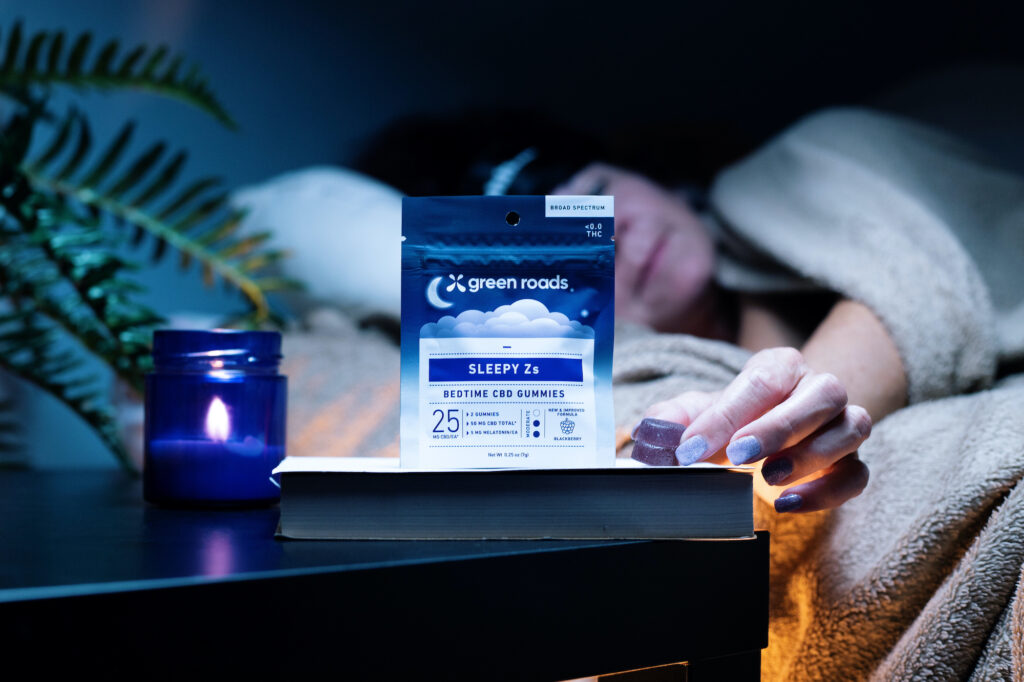Introduction:
Sleep is essential for our overall well-being, yet many individuals struggle with sleep-related issues. CBD, or cannabidiol, has gained attention for its potential benefits in promoting better sleep. In this comprehensive guide, we will explore the use of CBD for sleep, including its potential effects, types of CBD products, safety considerations, and how to incorporate CBD into your sleep routine. It is important to note that while CBD shows promise, individual results may vary, and it’s advisable to consult with a healthcare professional before using CBD for sleep.
Section 1:
Understanding CBD (400 words)
1.1 What is CBD?: Provide a brief overview of CBD, explaining that it is a compound derived from the cannabis plant but does not have psychoactive effects like THC. CBD interacts with the body’s endocannabinoid system, which plays a role in regulating various bodily functions, including sleep.
1.2 Research on CBD and Sleep: Discuss the existing scientific evidence on the potential benefits of CBD for sleep. While more research is needed, early studies suggest that CBD may help regulate sleep patterns, reduce insomnia symptoms, and improve sleep quality.
Section 2:
Choosing CBD Products for Sleep (500 words)
2.1 Types of CBD Products: Explain the different forms of CBD products available, including oils/tinctures, capsules, edibles, and topicals. Discuss the pros and cons of each form, highlighting factors such as onset time, duration, and ease of use.
2.2 Full-Spectrum vs. Broad-Spectrum vs. CBD Isolate: Explain the differences between these CBD formulations. Full-spectrum products contain CBD along with other beneficial compounds from the cannabis plant, including trace amounts of THC. Broad-spectrum products contain CBD and other cannabinoids but are THC-free. CBD isolate is pure CBD without any other compounds. Discuss the potential benefits and considerations of each option.
2.3 Dosage Considerations: Provide general guidelines for CBD dosing, emphasizing the importance of starting with a low dose and gradually increasing as needed. Stress the need to follow product-specific dosing recommendations and consult with a healthcare professional for personalized advice.
Section 3:
Safety and Legal Considerations (400 words)
3.1 Quality and Third-Party Testing: Highlight the importance of purchasing CBD products from reputable manufacturers that conduct third-party testing. These tests ensure that the product contains the stated amount of CBD, is free from contaminants, and complies with legal requirements.
3.2 Potential Side Effects: Discuss potential side effects of CBD, such as dry mouth, drowsiness, and changes in appetite. Emphasize that CBD is generally well-tolerated, but individual reactions may vary. Encourage users to monitor their response to CBD and consult with a healthcare professional if any concerns arise.
3.3 Legal Status of CBD: Explain the legal status of CBD products, including variations between countries and states. Clarify that CBD derived from hemp containing less than 0.3% THC is legal in many regions, but regulations may vary.
Section 4:
Incorporating CBD into Your Sleep Routine (500 words)
4.1 Consultation with a Healthcare Professional: Encourage readers to consult with a healthcare professional before using CBD for sleep, particularly if they have underlying medical conditions or take other medications.
4.2 Starting with Low Doses: Emphasize the importance of starting with a low dose of CBD and gradually increasing until the desired effects are achieved. This allows individuals to find their optimal dose while minimizing the risk of side effects.
4.3 Timing of CBD Consumption: Discuss the optimal timing for taking CBD for sleep. Some individuals find it helpful to take CBD approximately one hour before bedtime, allowing enough time for the compound to be absorbed
and potentially promote relaxation before sleep.
4.4 Tracking Sleep Patterns: Encourage individuals to track their sleep patterns and note any changes or improvements after incorporating CBD into their routine. This can help determine the effectiveness of CBD and guide any necessary adjustments to dosage or timing.
4.5 Sleep Hygiene Practices: Emphasize the importance of incorporating good sleep hygiene practices alongside CBD use. These practices include establishing a regular sleep schedule, creating a comfortable sleep environment, avoiding stimulating activities before bed, and practicing relaxation techniques.
Section 5:
Other Considerations and Precautions (300 words)
5.1 Drug Interactions: Highlight the potential for CBD to interact with certain medications. Remind readers to consult with a healthcare professional, particularly if they are taking medications metabolized by the liver, as CBD can affect the activity of certain enzymes responsible for drug metabolism.
5.2 Individual Variations: Acknowledge that individual responses to CBD can vary. What works for one person may not work the same for another. Encourage readers to be patient and give CBD enough time to assess its effects on their sleep.
5.3 CBD and Underlying Sleep Disorders: Note that CBD may not be a suitable solution for all sleep-related issues. If individuals suspect an underlying sleep disorder, it is important to seek professional medical advice for proper diagnosis and treatment.
Section 6
: Conclusion
(200 words)
In conclusion, CBD shows promise as a potential aid for improving sleep. Research suggests that CBD may help regulate sleep patterns, reduce insomnia symptoms, and improve sleep quality. However, it is important to approach CBD use for sleep with caution and consult with a healthcare professional before incorporating it into your routine, especially if you have underlying health conditions or are taking medications.
When considering CBD for sleep, choose reputable products, start with low doses, and monitor your response. Remember to prioritize good sleep hygiene practices alongside CBD use for optimal results. Keep in mind that individual responses to CBD can vary, and it may take time to find the right dose and timing that works best for you.
While CBD may provide benefits for some individuals, it is not a substitute for professional medical advice or treatment for underlying sleep disorders. If you have persistent sleep issues or suspect an underlying sleep disorder, consult with a healthcare professional for appropriate diagnosis and guidance.
Ultimately, CBD can be a potential tool to support your sleep, but it is important to approach it responsibly and make informed decisions based on your individual needs and circumstances.

